There is always a standoff between black and white.
Good and evil.
Yin and yang.
Amazon vs eBay.
Deciding on which is better is a deadlock as there are always advocates on both sides. But as an online seller, you still have to settle on the option that would be beneficial for your business, no matter what others say.
Because, in fact, even if you are working in the eCommerce retail domain alongside other sellers, it doesn’t mean that their strategies will suit your business needs. Your business is unique, so should be your decisions.
So, today we are comparing the experience of selling on eBay vs Amazon. Is Amazon better than eBay? We’ll figure it out by examining the audience reach, fees for sellers, and some other nuances of these platforms. By the end of this article, you’ll shape your mind about the best selling option for you.
Ready? Then let’s dive in.
General Amazon eBay Breakdown
Whether you are a newbie to the eCommerce business or already have some experience in marketing goods through the Internet, the question ‘What is it like to sell on eBay or Amazon’ seems to be the hot topic just for everyone.
Amazon is a true giant in the retail realm. It was named after the river in South America, implying that their selection of goods will be as wide and vast as the world’s largest river. Jeff Bezos was right because what started with books turned into the world’s largest platform where customers and sellers meet.
Amazon offers a wide range of options for online sellers. The merchant can enjoy the perks of FBA or FBM, join numerous programs for sellers that include worldwide selling, prime delivery, advertising, business, and more. You can build an online store that features your brand identity with ease.
Amazon also has its own brand called Amazon Essentials, which includes the basic line of clothes for men, women, and kids. So, if you sell clothes, be ready to compete with Amazon along with other third-party sellers.
eBay is another option for retail merchants who would like to present their goods to the world. Unlike Amazon, eBay doesn’t have its own brand but features different sales models, which we’ll cover later. This channel offers a person-to-person selling experience with utmost convenience for both parties.
It’s easy to list new products and market them through eBay. The platform offers a great kit of selling tools that help merchants build their brand and get insights into their performance.
Which Has More Customers: eBay or Amazon?
Here is no denying that both Amazon eBay have a massive reach. But what about the exact figures and the quality of the audience both marketplaces have? As you are selling on eBay versus Amazon, you’ve got to keep track of these metrics to make sure you run your business profitably.
eBay Buyers
Since eBay is a global platform, you’ll be reaching a wide audience regardless of the geographical location. eBay has more than 187 million buyers shopping through 190 markets all over the globe. It outperforms Amazon in the number of international users, which is explained by a great number of local shops all over the world. By the way, more than half of the platform’s revenue is generated from international buyers.
Even though eBay gets only 6% of the total market share, its audience is still active. These are 57% of men and 43 of women with an average age of 35-48 years. Thus, they are solvent and eagerly spend about 2 billion on their online shopping.
Amazon Buyers
Amazon is an absolute leader in the USA market and it dominates the market with 40.4% of the market share. Amazon already ships packages to around 100 countries, has 14 marketplaces globally, and they plan to grow.
More than 197 million buyers shop through Amazon monthly with transactions that bring $385 million each day. This retailer ships nearly 1.6 million orders a day and receives 18 orders every single second.
The audience shopping through Amazon is slightly older compared to eBay. So, if you ask ‘should I sell on eBay or Amazon’, we would recommend considering your audience. Even though there are plenty of young people shopping via Amazon, 45 and 54 years old buyers make the majority of Amazon shoppers.
Amazon vs eBay Selling Fees
Is it better to sell on eBay or Amazon? When making your decision, you’ve got to consider several factors, including the fees.
Both platforms we are comparing today have their own fee schemes. So, let’s compare Amazon selling fees vs eBay so you could decide which channel is more profitable for your business.
eBay’s Fees
When you become an eBay seller, you should get ready to pay two types of selling fees:
- Insertion fees – when creating new listings;
- Final value fees – when the purchase happens.
However, you don’t have to pay insertion fees when your products fall within the approved categories and you list no more than 200 products a month. Besides, when you add the same product in two different categories, you’ve got to pay a fee for the second one.
The final fee is calculated as a percentage of the total sum of the sale, which includes the item price, shipping, and handling charges.
Thus, the final fee amount will depend on the number of products you list monthly and the total price of the item.
You can also upgrade your listings with custom templates and other brand-related stuff at an additional fee.
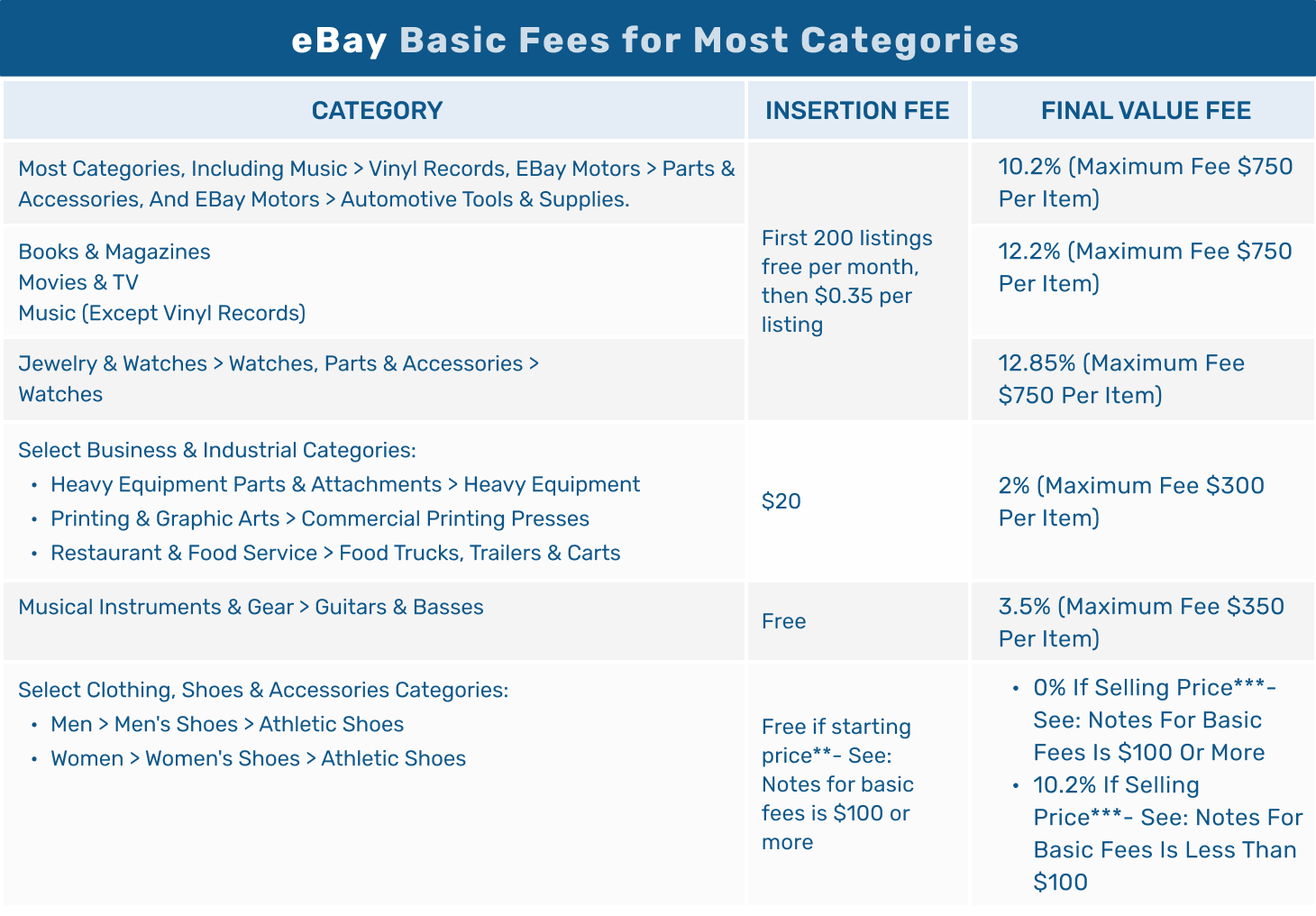
Amazon Fees
When comparing the experience of selling on eBay or Amazon in terms of fees, it’s crucial to take a look at what Amazon offers.
So, Amazon has two fee plans for its merchants: individual and professional. The one that would work for you will depend on your turnover.
The individual plan will work for beginners who are just starting their selling journey and have a small sales volume of around 40 items per month. When you go for this plan, you pay $0.99 per sale (the final fee might include additional selling fees, so it’s not the final sum).
It’s worth noticing that as we compare Amazon fees vs eBay, Amazon offers a flat monthly fee – $39.99, which doesn’t include additional selling fees. This is a great choice for merchants who sell more than 40 items per month and would like to advertise their goods (the individual plan doesn’t give access to the advertising kit).
In addition to the selling plan fees, there are also referral fees, which are calculated based on the item price, shipping, and handling costs. Each category has a different fee rate, so check the Amazon fee policy in advance.
As you sell through FBA, you should also consider the fulfillment fees, which are charged per unit. The final cost depends on the item dimensions and the spectrum of services you are getting from Amazon.
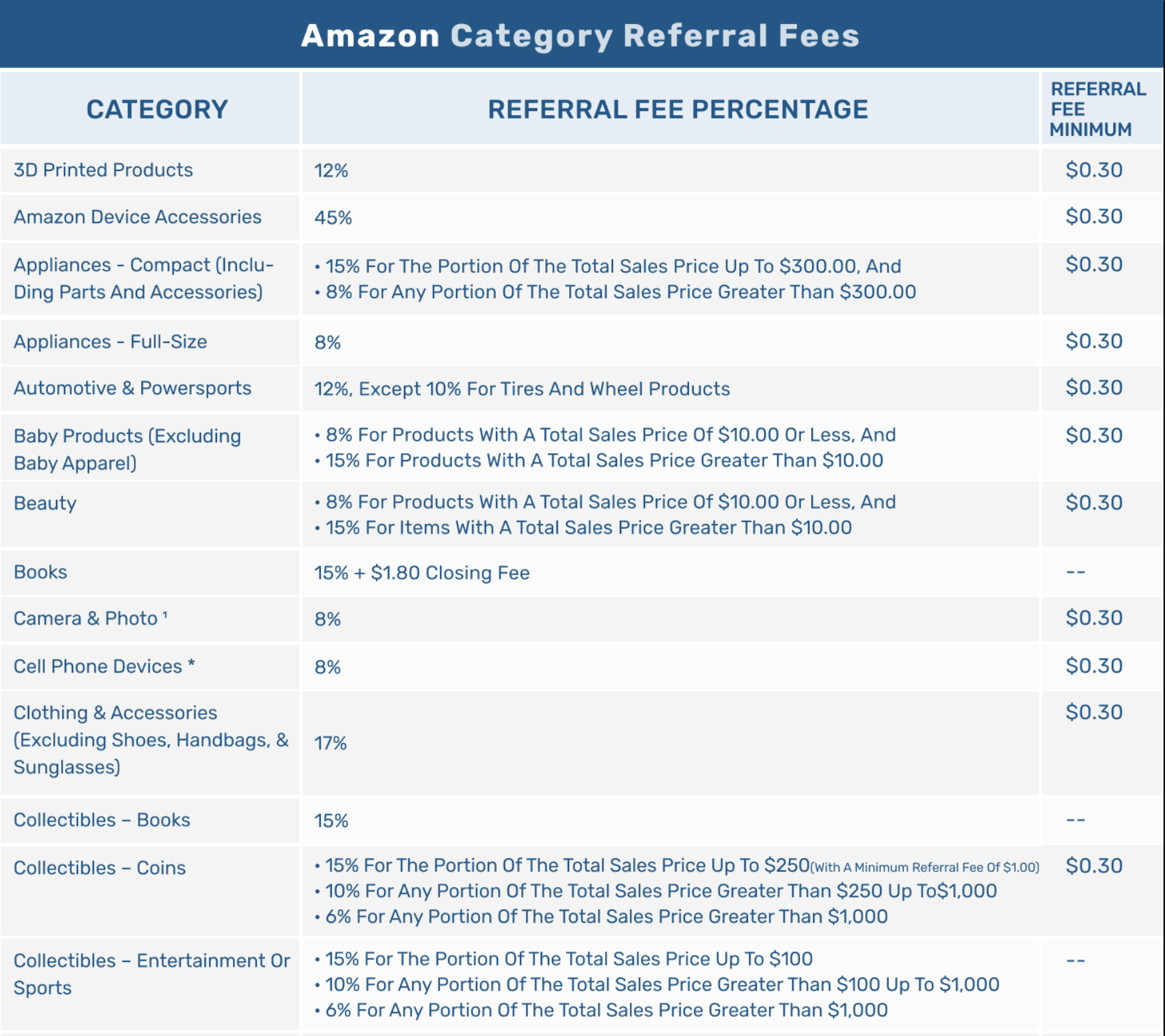
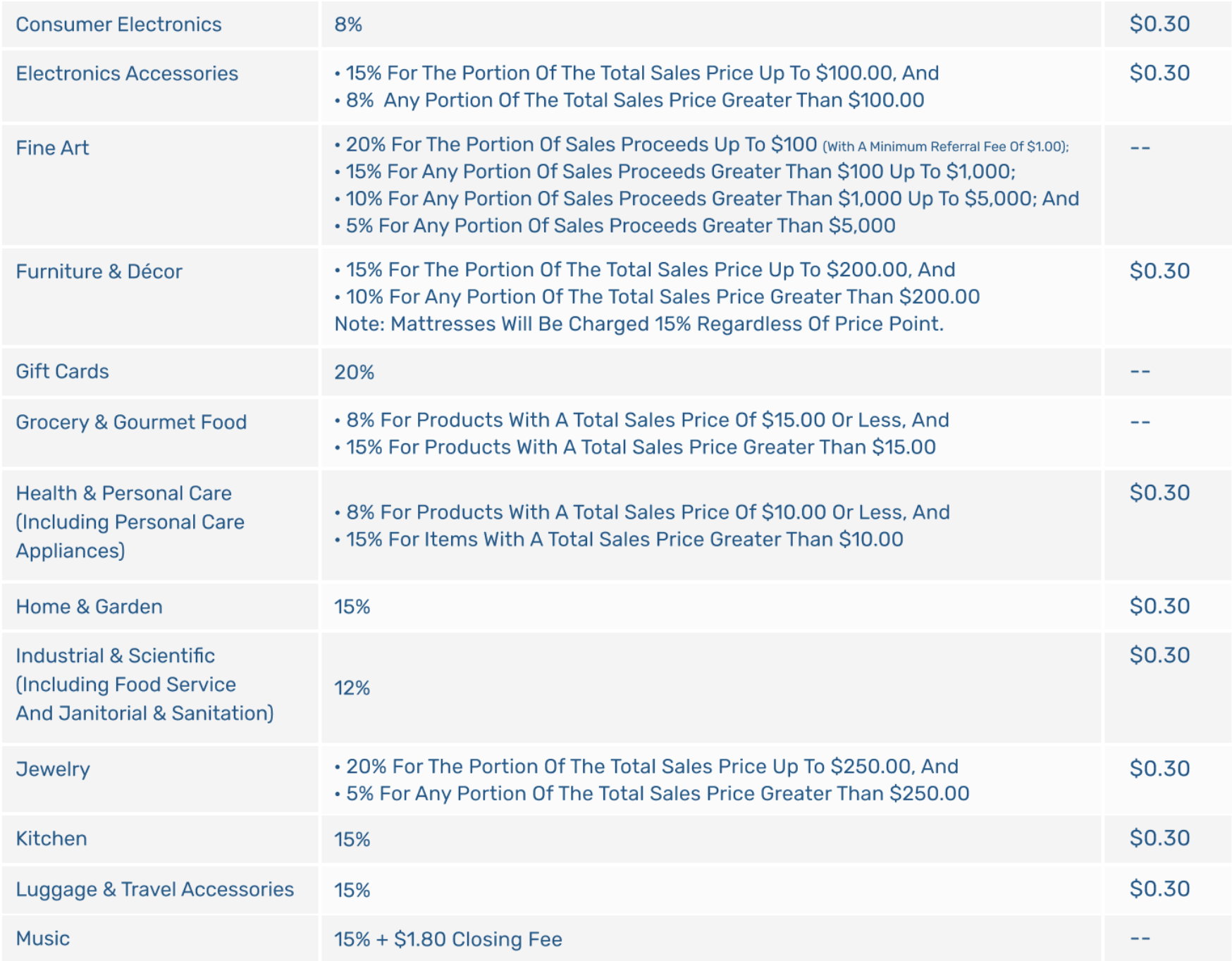
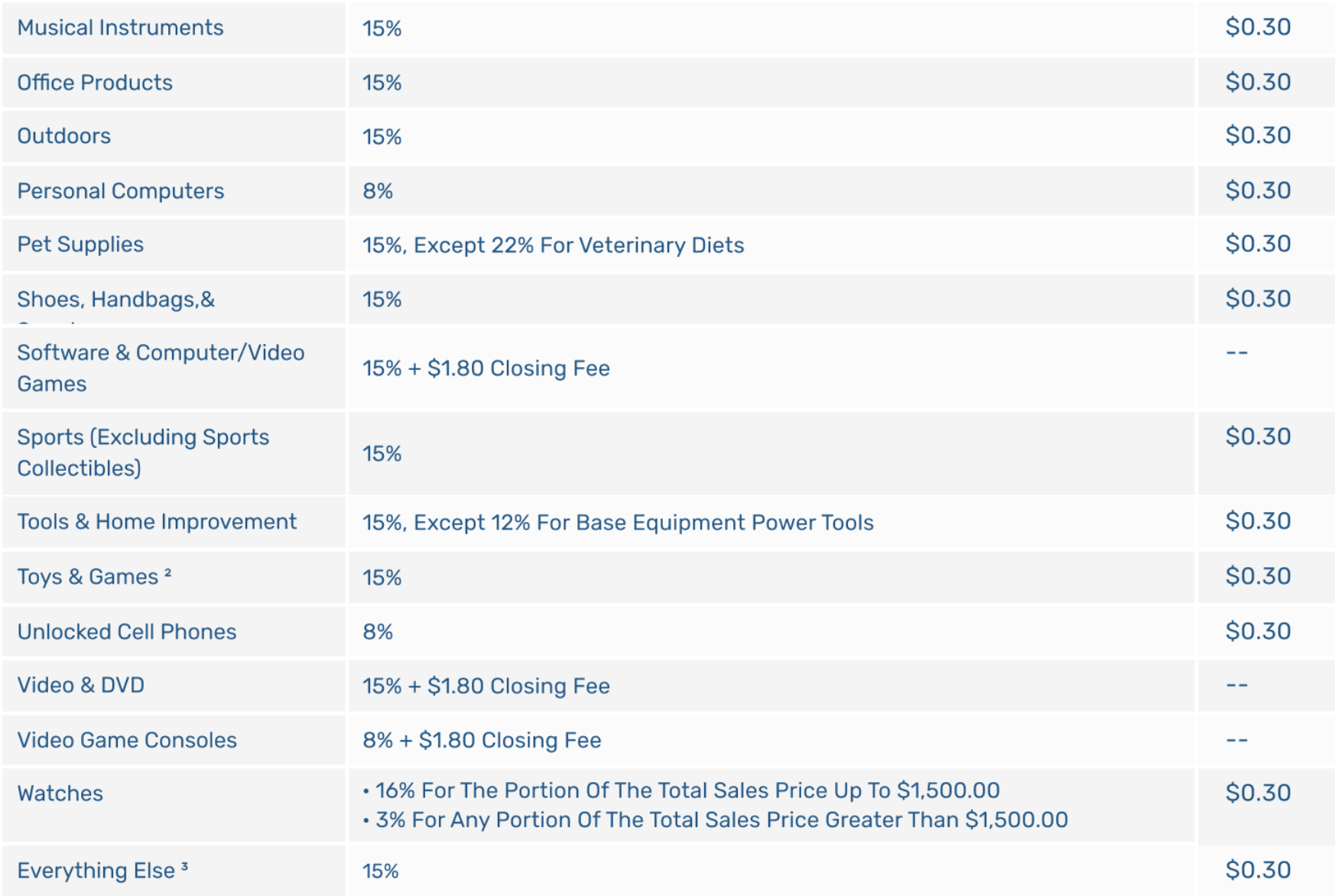
Sales Modes of eBay or Amazon
When you consider eBay or Amazon to sell, you should mind the sales modes and their benefits. Each platform has its advantages, so let’s take a closer look at them.
eBay Sales Modes
The greatest advantage of eBay versus Amazon is that it enables two sales modes for merchants. In these terms, eBay is better than Amazon. You can choose between two types of listings:
- Fixed-price
- Auction
Fixed-price listings work great for common items. This listing type involves the fixed price for the product, either used or new.
Auction listings are a great opportunity to generate good revenue for collectibles, handmade, or exclusive products. You set the initial price and then the customers increase the price by placing the bids. The one who offers more will get the item.
Amazon Sales Modes
Whether you sell new or used stuff, you set the fixed price and your customers should go with it. There is no option of auctions or any other selling models.
However, Amazon offers FBA fulfillment and will take care of handling your orders when you can’t manage them by yourself. This is a great option for businesses that do not have warehouses for keeping the stock or international merchants who would like to provide their clients with exceptional service and fast delivery.
As we weigh the differences between Amazon FBA vs eBay, eBay doesn’t have a similar option.
Amazon vs eBay: Communities & Support
When you are just starting your online business, it’s good to know that there is someone seasoned to help you out when any failures or issues happen. Let’s see which is better Amazon or eBay in terms of seller’s support.
Amazon Seller Support and Amazon Seller Forum
Amazon is a buyer-oriented organization and they build all its services around the convenience of its customers.
Merchants are not in great priority, so the seller’s support leaves much to be desired. Even though Amazon has a huge library of tutorials for sellers, there are cases when you’ve got to ask the support representative directly. That’s when the problems might emerge. Your message might get lost or you will get a response in several days that has nothing to do with your answer.
There is a forum organized for sellers, where users share their experience and help one another with the issues they face. This is probably the fastest and easiest way to get help.
eBay Community Forum
Comparing Amazon vs eBay selling experience and the quality of support, we should say that eBay does not deliver five-star assistance for sellers as well. But their support services are more bearable.
The procedure looks like this: you make an inquiry via email and wait for a response. It will take around 1-2 days for the support agent to process your request.
You can join the eBay community, where you can get in touch with other sellers or specialists. People share their ideas, ask questions and get answers, and get assistance in a friendly atmosphere.
Can I Sell On eBay and Amazon?
As you see from our eBay vs Amazon comparison, both platforms have their pros and cons. But it would be fair to say that marketing through both of them is more beneficial than sticking to a single marketplace. Why?
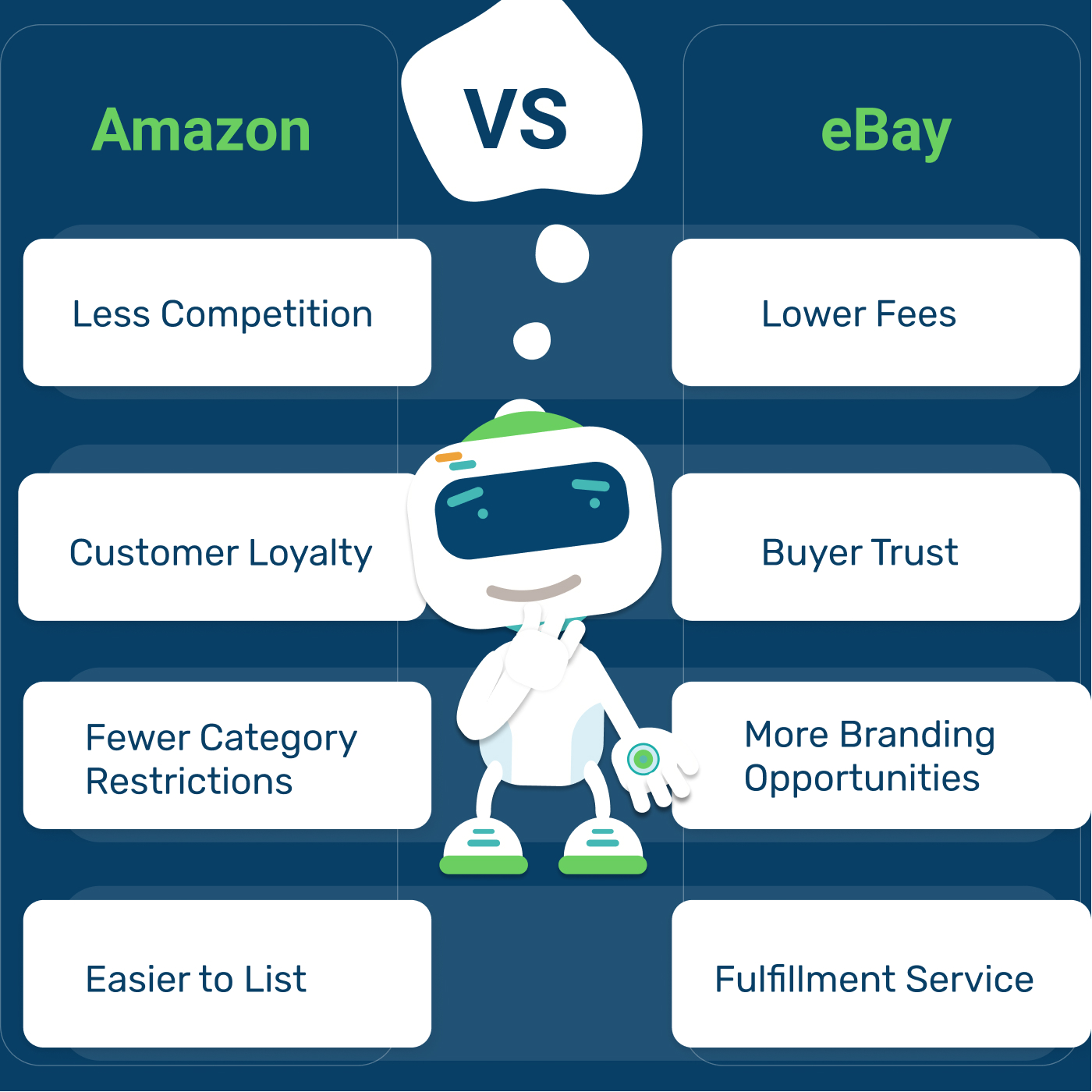
Because there are loyal fans of both channels and they will never shop somewhere else. Why lose the chance to reach a new audience if you can leverage both platforms?
If you think that’s too much for you and it will require more effort from your side, let us prove that you are badly mistaken.
SellerSkills has worked out a solution for smart sellers who see great opportunities in running a multichannel business. SellerSkills simplifies the experience of marketing through different platforms and allows you to manage all the listing-, inventory-, and order-related processes for a centralized hub.
You can do so many things with SellerSkills like list new products to all the integrated channels all at once. Manage your multichannel orders from one place without the need to switch between different tabs. Keep your inventory accurate with smart algorithms that prevent overselling.
Is it easy? Yes!
Convenient? Yes!
Time-saving? Absolutely!
With SellerSkills, you can unleash your business talents and forget about any restrictions! Sell through as many channels as you want without increasing the processing time.
The Pros And Cons of Selling on Amazon and eBay
Let’s draw the final conclusion and see all pros and cons of selling on eBay and Amazon.
|
|
|---|
|
|
|---|
Do not see any reasons to choose between Amazon or eBay? We either! Start your business expansion with SellerSkills multichannel management tool right now for free.
